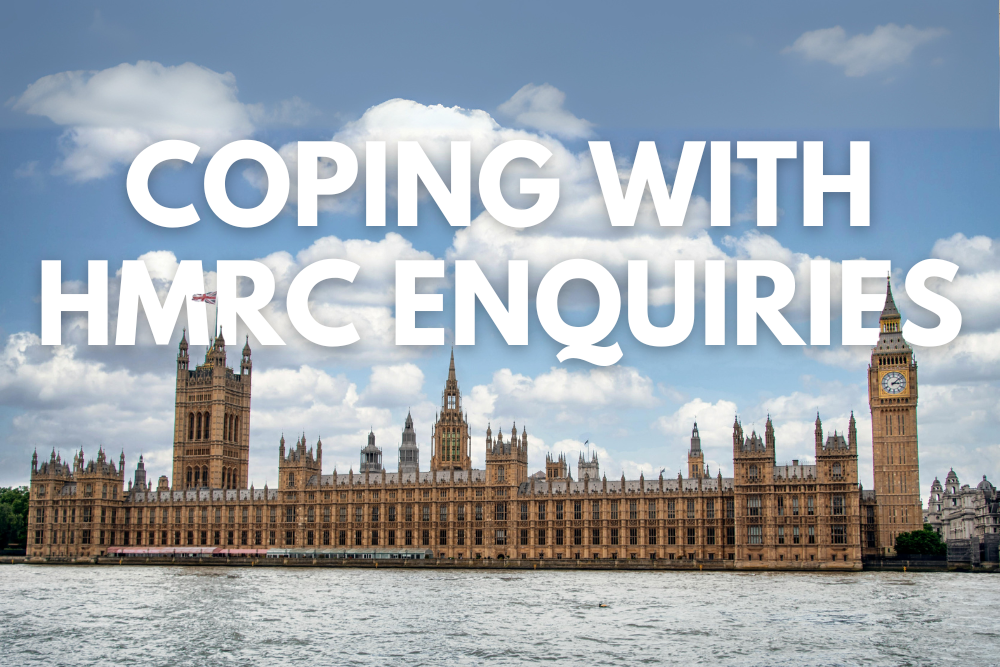
Coping with HMRC Enquiries
HMRC has powers to open two types of inspections: enquiries and investigations. Knowing how to respond effectively is crucial, as missteps can increase costs, extend timelines, and expose taxpayers to greater risks.
This is where professional support can make a real difference. At Arnold Hill & Co LLP, we guide businesses and individuals through HMRC enquiries, helping you respond accurately, reduce risks, and minimise disruption.
Types of Inspections
- Enquiries – HMRC has 12 months to open an enquiry. If it’s outside this window, the enquiry is invalid.
- Investigations – Cover tax years before the enquiry window, usually where HMRC believes tax has been underpaid. Time limits depend on the behaviour leading to the tax loss.
Understanding the difference between these processes - and how HMRC applies them - can be daunting. Our tax specialists ensure your case is handled correctly from the outset.
Sharing information with HMRC
Full cooperation with HMRC is important, but advisers must ensure information requested is both relevant and within statutory powers. Providing documents outside the period under review, such as historic bank statements, can invite broader scrutiny and extra costs.
If HMRC’s basis for a request is unclear, advisers should ask the officer to specify the legal authority. Proactive management of disclosures helps reduce unnecessary complications and protects clients from overreach.
We help clients strike the right balance: cooperating fully with HMRC while avoiding unnecessary over-disclosure that could complicate matters further.
Key Considerations
- Correct Addressee – Ensure the enquiry is addressed to the right taxpayer and location. Errors may render it invalid.
- Enquiry Window – Confirm HMRC is within the statutory time limit (typically 12 months from filing, with exceptions).
- Statutory Authority – Check the legislative basis (e.g., TMA 1970 s9A, FA 1998 Sch 18 para 24). This determines both the procedural framework and HMRC’s powers.
- Information Scope – Requests must be relevant to the return under review and reasonably required.
- Deadlines – Responses are usually due within 30 days. Manage timelines carefully and request extensions early if needed.
- Formal Notices – Delays may trigger statutory notices with potential penalties. Proactive engagement reduces this risk.
- Records – HMRC can demand statutory records, but non-statutory requests (e.g., personal bank accounts) should be scrutinised for relevance and proportionality.
Our team has extensive experience handling each of these points in practice, ensuring your responses are accurate, timely, and fully compliant.
Voluntary Disclosures
If inaccuracies emerge during an enquiry, a prompt voluntary disclosure is essential. HMRC will assess whether:
- Other periods are affected.
- The disclosure is within statutory time limits.
Behaviour drives both the time limits (4 years for innocent error, 6 for carelessness, 20 for deliberate behaviour) and the level of penalties. Openness, cooperation, and timely disclosure can reduce penalties by up to 50%. Advisers should manage disclosures carefully to limit both financial and reputational exposure.
We regularly assist clients with voluntary disclosures, managing communication with HMRC to minimise penalties and safeguard their reputation.
Resolving Disputes with HMRC
Disputes are sometimes unavoidable, but effective management starts with early engagement. A cooperative, solution-focused approach can prevent escalation. Where written exchanges stall, a virtual meeting can clarify facts and ease resolution.
HMRC rarely opens enquiries without identifying a perceived tax risk. Addressing this directly and constructively can help de-escalate matters, saving time and cost for the client.
Our advisers specialise in resolving disputes swiftly, reducing stress for clients while working towards the best possible outcome.
Final Thoughts
Managing an HMRC enquiry requires a balance of cooperation and caution. By focusing on relevance, deadlines, and clear communication, advisers can protect clients from unnecessary risks while helping to secure timely, cost-effective resolutions.
If you’ve received a letter from HMRC or are concerned about a potential enquiry, we can help. Our London-based team supports businesses and individuals through every stage of the process - from initial response to resolution.
Get in touch today to discuss how we can support you.
Author, Naheem Ahmed - Personal Tax
